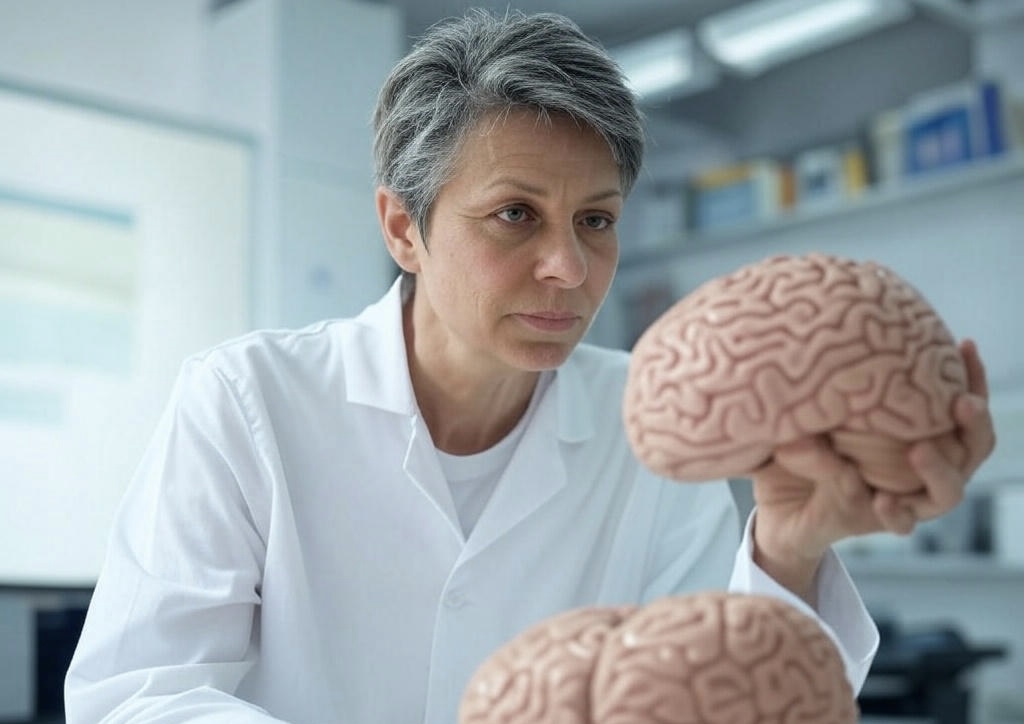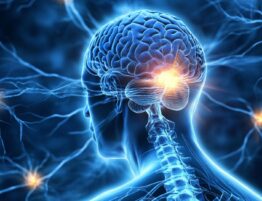Your brain is your superpower. It drives every thought, memory, and decision. But over time, brain aging takes hold. This natural decline slows mental sharpness. Memories slip. Focus wanes. Everyday tasks feel like puzzles, going well beyond simply misplacing keys. These cognitive changes diminish your quality of life. As we age, staying independent and connected becomes harder. Over 1.5 billion people will be over 65 by 2050, and they will be grappling with these changes. Why does this matter? A vibrant mind fuels joy, purpose, and freedom. Losing that clarity impacts how we live and love.
Can we slow cognitive decline? Science says yes. Researchers are unlocking the brain’s secrets. They range from lifestyle tweaks to groundbreaking therapies. Could exercise or diet keep your mind sharp? Can discoveries preserve your mental edge? Let’s explore the science and uncover practical ways to fight brain aging. Prepare to learn how to keep your brain young and brilliant for the years ahead.
What Happens to the Brain as We Age?
The brain undergoes significant biological and neurological changes as we age. These shifts impact how we think, remember, and function. Aging is universal, and the pace of these changes varies widely among individuals. Below is a numbered list of key changes that occur in the aging brain, explained in clear, accessible terms:
- Shrinking Brain Volume: Starting in our 30s, the brain gradually loses volume. The prefrontal cortex and hippocampus are critical for decision-making and memory. These areas shrink most noticeably, which is critical for understanding how brain aging affects cognition.
- Slower Processing Speed: Aging slows the speed at which neurons communicate. This leads to delayed reactions and longer times to process information. For example, finding the right word during a conversation may take longer.
- Reduced Neuroplasticity: This is the brain’s ability to form new connections and adapt. With age, this flexibility declines. Learning new skills or recovering from mental challenges becomes tougher. However, stimulating activities can help maintain plasticity.
- Decreased Blood Flow: Brain vessels narrow over time, reducing oxygen and nutrient delivery. This impacts cognitive functions and contributes to mental fatigue and decreased focus during tasks.
- Loss of Synaptic Connections: Synapses, where neurons exchange signals, weaken or decrease in number. This disrupts communication within the brain, affecting memory and problem-solving abilities.
- Early Signs of Cognitive Decline: Subtle changes often appear in the 50s or 60s. Forgetting names, misplacing items, or struggling to concentrate are common. These don’t always signal severe conditions like dementia. They also reflect normal aging for many.
Individual differences play a significant role. Genetics, lifestyle, and health conditions influence how fast the brain ages. For instance, chronic stress or poor diet can accelerate decline. Exercise and mental stimulation may slow it. Most people experience mild cognitive changes, but severe decline isn’t inevitable. Understanding these shifts empowers us to stay active or eat well. These steps support brain health and help maintain mental sharpness longer.
How Lifestyle Factors Shape Brain Aging
Your daily habits hold incredible power over your brain’s health. Brain aging isn’t just biology — it’s generally shaped by how you live. Staying active, sleeping well, and managing stress are pivotal lifestyle factors. Connecting with others can slow cognitive decline. Science shows these factors boost brain resilience, improving memory, focus, and mental clarity. The best part? It’s never too late to start. Below is a numbered list of key lifestyle factors and how they influence brain aging. It empowers you to take control at any age:
- Exercise: Physical activity increases blood flow to the brain. It also delivers oxygen and nutrients. Regular movement, like walking or yoga, promotes neuroplasticity. It also stimulates the growth of new brain cells, especially in the hippocampus. Studies show 30 minutes of moderate exercise on most days reduces the risk of memory decline.
- Sleep: Quality sleep clears toxins from the brain and strengthens memory. Poor sleep, even in your 40s, accelerates cognitive decline. Aim for 7-9 hours nightly, consistent bedtimes, and a screen-free routine. It helps prevent brain aging.
- Stress Management: Chronic stress floods the brain with cortisol. It damages neurons and shrinks the hippocampus. Meditation, deep breathing, or mindfulness lowers stress hormones. These activities also preserve cognitive function. Even 10 minutes daily can make a difference.
- Social Engagement: Strong social ties keep your brain sharp. Conversations and relationships stimulate cognitive processes, reducing dementia risk. Joining clubs, volunteering, or simply chatting with friends builds mental resilience and counters the isolation that accelerates brain aging.
These lifestyle factors don’t just maintain brain health, they enhance it. For example, exercise and sleep improve mood, which supports motivation for social activities. Combined, they create a cycle of positive brain health. Research confirms that lifestyle changes are possible even in your 60s or beyond. You can slow cognitive decline significantly. You don’t need drastic overhauls. Small, consistent steps work. Swap a sedentary hour for a walk. Prioritize a bedtime routine. Call a friend. Every choice counts. Embracing these habits is crucial. You’re not just aging, but thriving with a sharper and more vibrant mind for years to come.
Nutrition for a Younger Brain
A vibrant and healthy brain truly begins with the food you eat. The nutrients in your daily meals directly impact how your brain functions, adapts, and ages. Good nutrition boosts neuroplasticity. Neuroplasticity is the brain’s ability to form and reorganize connections. This is crucial for responding to learning challenges or recovering from injury. It also plays a key role in lowering the risk of cognitive diseases like Alzheimer’s. Foods rich in omega-3 fatty acids, antioxidants, and essential vitamins are helpful. They help protect neurons and improve memory, focus, and clarity. In contrast, diets high in processed sugars may accelerate mental decline. Here’s how to nourish your brain:
- Omega-3s for Neuron Health: Salmon and walnuts support memory and learning. Swap red meat for fish twice a week.
- Antioxidants to Fight Damage: Berries, spinach, and dark chocolate neutralize free radicals. These foods also significantly reduce inflammation. Replace sugary snacks with a handful of blueberries.
- Whole Grains for Steady Energy: Oats and quinoa provide glucose, the brain’s fuel. Switch white bread for whole-grain options.
- Healthy Fats for Brain Structure: Avocados and olive oil strengthen neural membranes. Use olive oil instead of butter for cooking.
- Limit Processed Sugars: Sugary drinks and desserts spike blood sugar, harming cognition. Opt for water or unsweetened tea.
A Mediterranean diet, rich in these foods, is generally linked to a 30% lower risk of Alzheimer’s. Avoiding processed foods reduces oxidative stress, preserving brain volume. Choosing nuts over chips or greens over fries makes a difference. Even small changes in your 50s or beyond can boost cognitive resilience. For example, per studies, adding a daily serving of leafy greens can slow age-related diseases by up to 11 years. Remember that hydration matters too. Drink 8 cups of water daily to keep your brain sharp. Nutrition isn’t a cure-all but a proactive step. This approach helps keep your mind youthful and reduces age-related risks. Start today with one swap, and your brain deserves it.
Supporting Mental Health to Stay Sharp
Mental health is a cornerstone of maintaining a youthful, sharp brain. Chronic stress, depression, and anxiety don’t just affect mood. They can accelerate brain aging, also known as senescence. These mental health challenges often impair memory, focus, and decision-making abilities over time. Prioritize emotional well-being through mindfulness, therapy, and regular social connection. Stress management can significantly slow cognitive decline. Supporting mental health strengthens the brain’s resilience to aging and everyday stressors. Caring for your mind protects your brain’s vitality and long-term performance. Here’s how:
- Chronic Stress Harms Neurons: Prolonged stress raises cortisol. It shrinks the hippocampus and weakens memory. Daily deep-breathing exercises can lower stress levels.
- Depression Clouds Cognition: Untreated depression disrupts focus and decision-making. Therapy or counseling can lift mood and preserve mental clarity.
- Anxiety Overloads the Brain: Constant worry impairs working memory, making tasks harder. Mindfulness meditation, even 10 minutes daily, reduces anxiety’s grip.
- Emotional Wellbeing Boosts Resilience: Positive emotions strengthen neural connections. Regular gratitude journaling fosters optimism and cognitive health.
- Therapy Enhances Brain Function: Cognitive behavioral therapy (CBT) rewires negative thought patterns. It also significantly improves problem-solving. Seeking help is a proactive step for brain health.
Studies show that chronic stress can cause age-related diseases. It also ages the brain by up to four years. Depression doubles dementia risk. Conversely, mindfulness practices increase gray matter in memory-related areas. Therapy, even later in life, improves emotional regulation and supports decision-making. Simple habits like taking a daily walk or connecting with loved ones can make a big difference. They nurture emotional health and protect against cognitive decline. Mental health challenges don’t define you. Addressing them can transform your brain’s future. Start small: try a mindfulness app and talk to a therapist. You may also share your feelings with a friend. Protecting your mental health isn’t just about feeling good today. It’s an investment in a sharper and stronger brain tomorrow. Take that first step, and remember that your mind is worth it.












I've given up... the stress her office staff has put me through is just not worth it. You can do so much better, please clean house, either change out your office staff, or find a way for them to be more efficient please. You have to do something. This is not how you want to run your practice. It leaves a very bad impression on your business.
Please, leave your review
Write a comment: